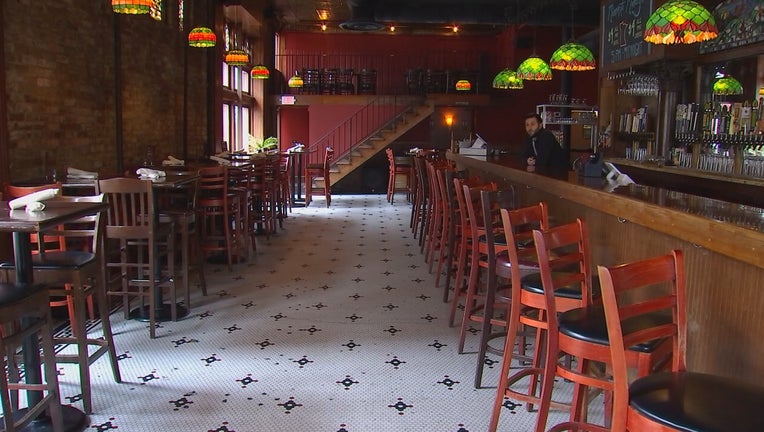GOP senators criticize Walz's bar and restaurant closure order

ST. PAUL, Minn. (FOX 9) - Seven Minnesota Senate Republicans criticized Gov. Tim Walz for ordering the closure of bars and restaurants across the state, arguing the move would be “devastating” to Minnesota’s economy.
Walz has ordered thousands of businesses to shut down until at least March 27 in an attempt to slow the coronavirus outbreak. Bars and restaurants must close their doors to dine-in customers, though curbside and delivery services are allowed to continue.
“Ordering them to close, even for two weeks, will have a disastrous effect not just on our economy, but on thousands of hourly wage earners and small business owners,” said state Sen. Roger Chamberlain, R-Lino Lakes.
The other senators were: Carrie Ruud, Jason Rarick, Andrew Mathews, Paul Utke, John Jasinski and Scott Newman. Senate Majority Leader Paul Gazelka has not said where he stands, though Gazelka publicly backed Walz’s earlier order to close Minnesota schools.
Not just bars and restaurants are closing. The executive order also requires businesses ranging from movie theaters, fitness clubs, bowling alleys and bingo halls to shutter. Walz signed a second order directing the state’s unemployment insurance office to more quickly pay claims.
Walz has acknowledged the economic impact of his decision, noting that it would likely be the single-biggest mass layoff in Minnesota history. He said the closures were necessary to protect Minnesotans from the spreading virus.
"I share their concerns. I do not take this lightly," Walz said in a Thursday afternoon interview with Minnesota Public Radio.
Minnesota has 60 confirmed cases of coronavirus, including some health care workers, state public health officials said Tuesday. The statewide numbers are undercounting cases because testing is not widespread, the officials said.
Council extends peacetime emergency
Minnesota’s five-member executive council voted Monday night to extend Walz’s peacetime emergency to 30 days, allowing the closures of schools and businesses to continue.
The meeting of the five statewide elected officials – Walz, Lt. Gov. Peggy Flanagan, Attorney General Keith Ellison, Auditor Julie Blaha and Secretary of State Steve Simon – is required under Minnesota law whenever a governor makes a peacetime emergency declaration.
The vote extending the emergency declaration was unanimous, Blaha said in a news release.
Walz signs hospital funding bill
Sitting privately in his office, Walz quietly signed legislation providing $200 million in relief funds to health care providers Tuesday. The bill signing contrasts with last week’s public ceremony and news conference when Walz signed $21 million for the public health response into law.
After closed-door negotiations dragged on throughout the day, the Legislature passed the $200 million package in a process that defied public input. The final vote in the House happened around 3:30 a.m.
Both the House and Senate votes were unanimous: 55-0 in the Senate and 108-0 in the House.
Before the vote, hospital executives were mum when a reporter asked them to publicly say what they were requesting.
The measure will free up $50 million that the state’s Health Department can dole out immediately to help providers deal with the coronavirus response. An additional $150 million will be available in a grant program.
Hospitals, clinics, ambulance companies, nursing homes and pharmacies are among the eligible providers. They can use the money to create isolation units, buy protective gear, pay staff overtime, and many more acceptable uses.
“We know we have great need, and if we don’t get our system going and get the resources where we need them, we may be in deep, deep trouble,” said state Rep. Tina Liebling, DFL-Rochester. “I mean, we may be in deep, deep trouble anyway, but we’re trying to mitigate that with this.”
Health care providers that accept state funding will not be allowed to bill uninsured patients for the cost of coronavirus testing and treatment.

